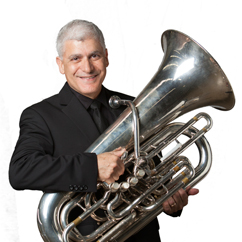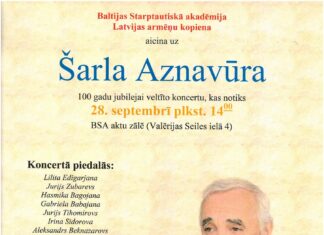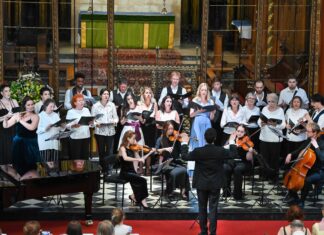By Richard Sandomir
TEMPE, Ariz. (New York Times) — Sam Pilafian, a virtuoso tuba player who performed an eclectic mix of classical, jazz, pop and rock music and brought unflagging exuberance to teaching young tubists, died on April 5 at his home in Tempe, Ariz. He was 69.
His wife, Diann (Jezurski) Pilafian, said the cause was colon cancer.
As a busy soloist, a founding member of the influential Empire Brass quintet and a partner to the acoustic guitarist Frank Vignola in the jazz group Travelin’ Light, Pilafian expanded the musical possibilities of his lumbering instrument.
“He’s easily the best tuba player I’ve ever played with,” the trumpeter Charles Lewis, another original member of Empire Brass, said by telephone. “He could do everything — play all kinds of music — and he could light up a room.”
Pilafian, a natural entertainer, was once nicknamed the Evel Knievel of the Tuba for daringly playing The Clarinet Polka while standing on his head. He also tried teaching the tuba to Fred Rogers on an episode of “Mister Rogers’ Neighborhood” in 1985.








